Presidents Day
In honor of the Presidents Day holiday, this is our last issue until Tuesday, February 21. See you then!
In honor of the Presidents Day holiday, this is our last issue until Tuesday, February 21. See you then!
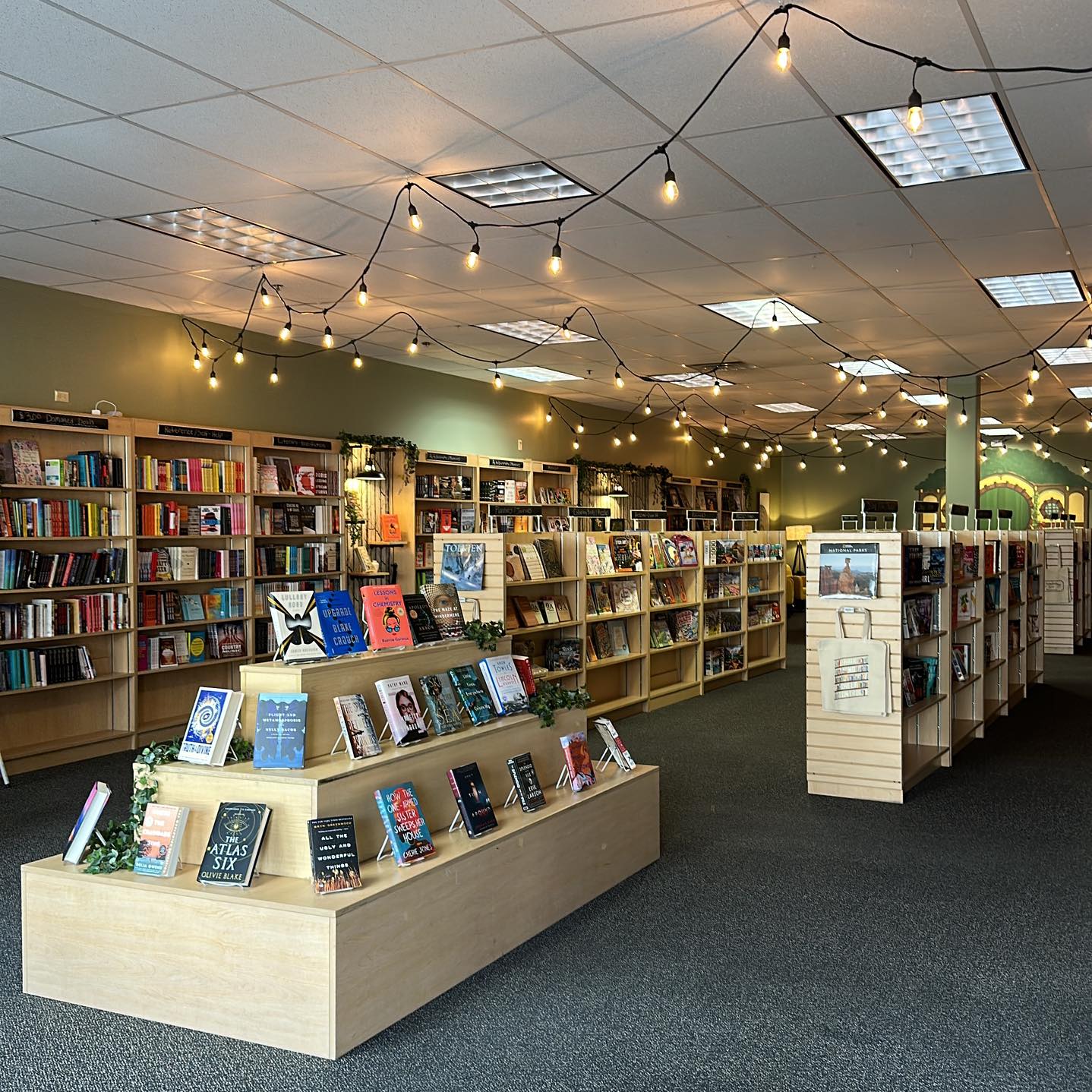 Wandering Hare Bookstore, Gettysburg, Pa., owned and operated by Chris and Jenn Hare, hosted a grand opening celebration last weekend, at the Outlet Shoppes at Gettysburg on 1863 Gettysburg Village Drive, suite 920. WHTM reported that last fall Chris Hare quit his job in the corporate world and "decided to look somewhere else to utilize his business skills--starting with e-commerce" and online bookselling. During that time, franchise bookseller Book Warehouse closed its location at the Outlet Shoppes at Gettysburg.
Wandering Hare Bookstore, Gettysburg, Pa., owned and operated by Chris and Jenn Hare, hosted a grand opening celebration last weekend, at the Outlet Shoppes at Gettysburg on 1863 Gettysburg Village Drive, suite 920. WHTM reported that last fall Chris Hare quit his job in the corporate world and "decided to look somewhere else to utilize his business skills--starting with e-commerce" and online bookselling. During that time, franchise bookseller Book Warehouse closed its location at the Outlet Shoppes at Gettysburg.
"I was selling a lot of books through e-commerce, so I had experience with selling books, and then the opportunity came to open our own 'mom and pop' bookstore and we took it," he said.
The Wandering Hare Bookstore occupies a 2,600-square-foot space, and offers a wide selection of children's and YA books, science fiction/fantasy and more, as well as sidelines like games, puzzles, and other merchandise.
"There is absolutely something for everyone," he added. "We are constantly growing our inventory."
This bookstore "has a very inviting atmosphere inside--with bulb lights strung from the ceiling, green foliage draped over the windowsills, and a 'hobbit-hole' type mural on the back wall by the children's reading section--creating an enchanted forest like vibe for customers to wander through," WHTM noted.
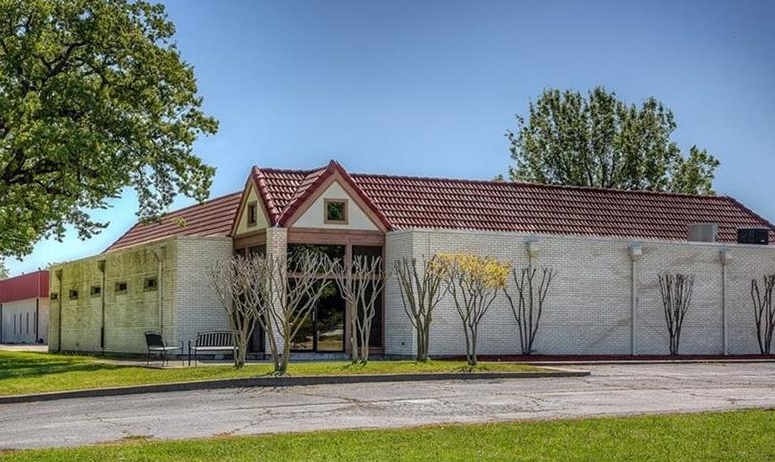 A New Chapter Bookstore in Greenville, Tex., is up for sale, the Herald Banner reported.
A New Chapter Bookstore in Greenville, Tex., is up for sale, the Herald Banner reported.
Owners Margo and Bob Roberts have decided to sell the store after owning and operating it for five years. The shop resides in a 10,000-square-foot building at 111 Taylor Plaza Drive in Greenville and carries used and new titles across all genres. A New Chapter also hosts a variety of community events like Dungeons & Dragons groups, book clubs and home-school classes.
Margo Roberts explained to the Herald Banner that she and her husband had actually been thinking about closing the bookstore, but community members were so dismayed by the idea they decided to look for a buyer instead.
They plan to stay on for another six months or so after the sale to teach the new owner the ropes and explain to them "what we would have done differently if we could start over again knowing what we know now."
When the Robertses purchased the store, it was known as the Book Nook and located at 2824 Terrell Road. They later renamed the store and moved it to its current home.
 After closing a store in Reston, Va., in 2013, Barnes & Noble is returning with a store that will open in late spring or early summer, Connection Newspapers reported. Including a café, the location will have 28,000 square feet of space, making it the largest store B&N has opened in a decade, a spokesperson told the newspaper. Most new B&N stores are around 15,000 square feet in size.
After closing a store in Reston, Va., in 2013, Barnes & Noble is returning with a store that will open in late spring or early summer, Connection Newspapers reported. Including a café, the location will have 28,000 square feet of space, making it the largest store B&N has opened in a decade, a spokesperson told the newspaper. Most new B&N stores are around 15,000 square feet in size.
The new store is opening in the Spectrum at Reston Town Center, the site of its previous store, and will be a major tenant. Lerner Enterprises, the developer and owner of the Spectrum, had decided not to renew B&N's lease a decade ago, but now is welcoming it back. In the past couple of years, several major Spectrum tenants, including Best Buy, Office Depot and Starbucks, have closed their branches there.
---
In another example of returning to an area after a long absence, Barnes & Noble plans to open a store in the Dalewood Shopping Center, in Hartsdale, N.Y., in Westchester County, according to lohud.com. The planned 12,490-square-feet store is "the type of business that will help revitalize the Central Ave. business corridor," town supervisor Paul Feiner said.
Until 2007, B&N had a store nearby on Central Ave. in Hartsdale, which it closed because, at the time, retailers were leaving the area.
---
Barnes & Noble has closed one of its two stores in Rochester Hills, Mich., the Oakland Press reported. The closed B&N was the larger and older of the two; the remaining B&N is one of the company's first smaller, redesigned "new concept" stores and opened in 2019. It is six miles from the closed B&N.
Praises Bookstore, a Christian bookstore in Portsmouth, Ohio, will open a second location, in Chillicothe, Ohio, the Scioto Valley Guardian reported.
The new store will reside at 72 North Paint St. in Chillicothe's historic downtown and carry a mix of Christian books and gifts. The owners have not yet said when the new location will open.
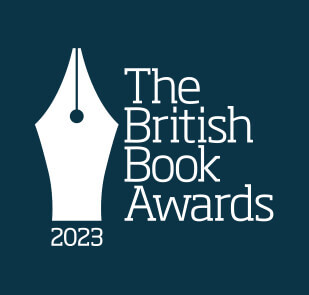 Small presses across the U.K. and Ireland have had a "year of exceptional sales and profit growth in the face of Brexit and escalating running costs" and are "showing that even in a toughened climate, grassroots book making is alive and well," said Philip Jones, chair of judges for the British Book Awards and editor of the Bookseller, which recently announced regional and country finalists for the Small Press of the Year Award.
Small presses across the U.K. and Ireland have had a "year of exceptional sales and profit growth in the face of Brexit and escalating running costs" and are "showing that even in a toughened climate, grassroots book making is alive and well," said Philip Jones, chair of judges for the British Book Awards and editor of the Bookseller, which recently announced regional and country finalists for the Small Press of the Year Award.
The Guardian reported that independent presses "are optimistic about the future, a very different picture from just three years ago, when research found that more than half of the U.K.'s small publishers feared they could be out of business by autumn 2020 as a result of the coronavirus pandemic, which led to the cancellation of author events, delays in titles being released and poor bookshop sales."
Bluemoose Books founder Kevin Duffy, a finalist in the North England region, said the landscape for small presses is "tough, every week is a battle," but he remains positive, particularly about working with independent booksellers, who "are telling us that readers are saying they're not finding anything different, and independent bookshops are pointing to smaller independent publishers. I think that's one of the reasons why independent presses are being shortlisted and winning literary prizes, because we are taking risks the bigger publishers aren't."
Penny Thomas, publisher at Firefly Press, shortlisted in the Wales category, noted that small presses, "including those based outside of London, do definitely publish big books, but with relatively diminutive marketing budgets we are always fighting to be seen in the trade and to get those books out to readers."
Both Duffy and Thomas cited awards and working with independent bookshops as key ways for small presses to thrive. The overall Small Press of the Year winner will be announced at the British Book Awards on May 15, and will also compete in the Independent Publisher of the Year category.
---
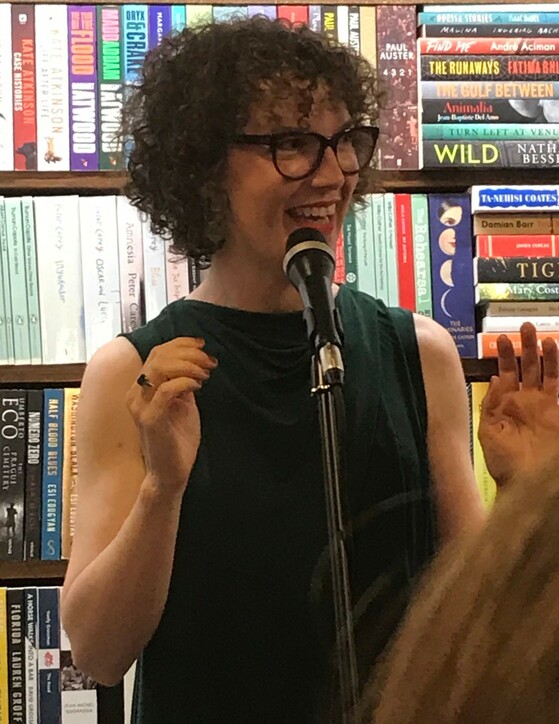 |
|
| Anna MacDonald | |
BookPeople, the Australian indie booksellers association, shined its Spotlight series on Anna MacDonald of the Paperback Bookshop in Melbourne. Among the highlights from the q&a:
Tell us about some of your fondest experiences relating to the industry so far.
I think that everyone who loves books and works as a bookseller knows what a privilege it is to be able to spend your days talking to people about books. But some of the my most-treasured experiences over the 11 years I've worked at the Paperback are to do with people, rather than the books we have in common. I feel very lucky to have worked alongside and been mentored by Rosy Morton, who was the previous owner of the shop. Rosy has always worked in a spirit of openness and generosity, and I've learned a lot from her. In that same spirit, I'm grateful for the support of other independent booksellers, which became more important than ever during the lockdown-pandemic years. One of the things that helped me to get through that time was the camaraderie of Megan O'Brien, formerly of Brunswick Bound, and Leesa Lambert from Neighbourhood Books. Something else that helped me--and the bookshop--during that time, was greater connection with fellow-readers. We've always had that at the Paperback, but these connections were strengthened during lockdown, and have continued to be a huge part of our day-to-day at the shop. I am constantly astounded by the curiosity and adventurousness of the readers I have the pleasure of speaking with--and learning from--every day.
What are your goals for the next few years now that you have taken over the business?
Although, having worked at the Paperback for many years, I was already familiar with most aspects of the business before I took it on, there are some things that are new to me and I expect to spend a bit of time getting my head around those over the next year or so. The emphasis at the shop at the moment, though, is to foster what we already have and to build further on work we've already been doing. To that end, we've just launched a seasonal subscription service, which the other staff and I have had a lot of fun putting together. There's been a very positive response to it from customers, as well, which is gratifying. We're also further developing the series of pamphlets we started publishing last year in association with our Salon event series. And we're starting to talk about a podcast, featuring the author conversations we run as part of the Salon. So, there are a few new things to look forward to in the immediate future.
---
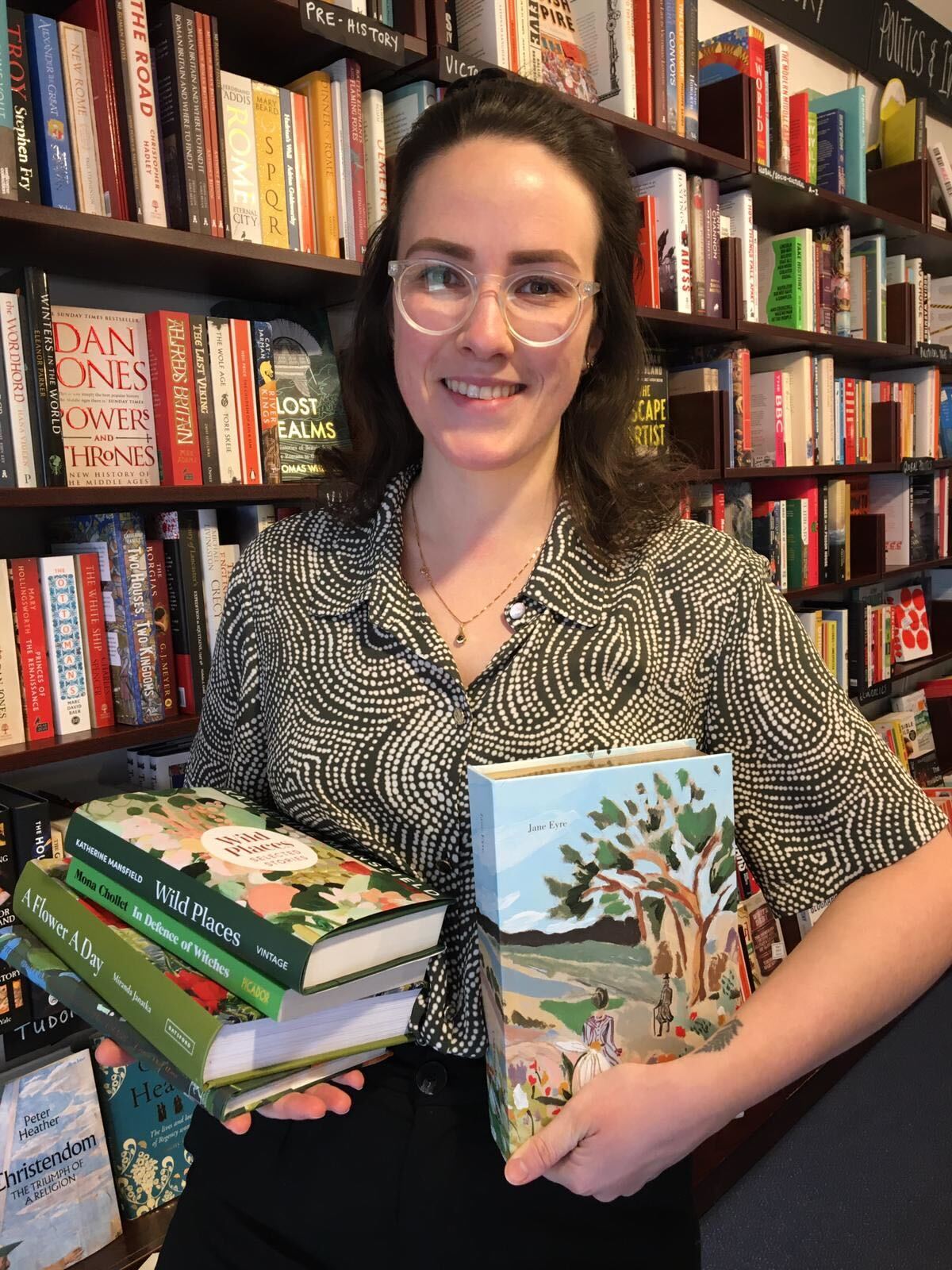 |
|
| Tora Åsling | |
Tora Åsling, policy assistant at the European & International Booksellers Federation in Brussels, is currently engaged in a bookshop training at the British indie Red Lion Books in Colchester. Newsflash reported that "as part of EIBF's training, all staff members will, at some point, spend time at a bookshop to experience the daily activities put into place in bookshops of the EIBF network, gaining first-hand insight into the bookselling reality." --Robert Gray
British poet, novelist and story writer Georgina Hammick, who "gave fine-tuned expression to her moment in English culture, writing with wit and insight about class and sexual politics and change," died January 8, the Guardian reported. She was 83.
"Her published output was small--two volumes of stories, two novels--because, although writing was at the center of her life, she suffered painfully from self-doubt; and yet her hard-won prose reads effortlessly. It is stylish and elegant and funny," author Tessa Hadley wrote in the obituary.
Hammick began writing as a poet in the 1970s, but "it was in the short stories and novels that her wry delicacy and irony came into their own, made substantial in her middle-class characters. These are often women, sharply observant and intelligent, comically uncomfortable inside traditions of femininity which no longer fit, yet unable to escape them," Hadley noted.
Her books include People for Lunch; Spoilt; The Arizona Game, which was shortlisted for the Whitbread First Novel Award; and Green Man Running. In 1992, she edited The Book of Love and Loss for Virago. She was elected as a Fellow of the Royal Society of Literature in 2001.
She married Charles Hammick, a major in the Grenadier Guards, in 1961 and entered "a smart set rather like her parents' world, but was never quite at home there: her leftist politics, vegetarianism and passion for literature set her apart," Hadley wrote, adding that in 1968, they founded Hammicks Bookshop in Farnham, a business that grew eventually to 21 shops. "This brought Georgie into blissful contact with poets and novelists; she was moving into a world where she felt she belonged, and began writing poetry herself, experiencing the 'anguish of wanting to keep going while feeling guilty about it, with the children all in turn disturbing her, and a smoky fug emanating from her writing room.' She gave readings and in 1976 was published, along with four other poets, in a collection by Gollancz titled A Poetry Quintet."
In her 70s, Hammick moved to London and "loved being part of a literary scene and a circle of reading and writing friends," Hadley noted. She served on various arts panels and for English PEN, was a fellow of the Royal Society of Literature, and a judge for the V.S. Pritchett and Ackerley prizes among others. To the end of her life, she was working on a novel, revising over and over, and it remains unfinished.
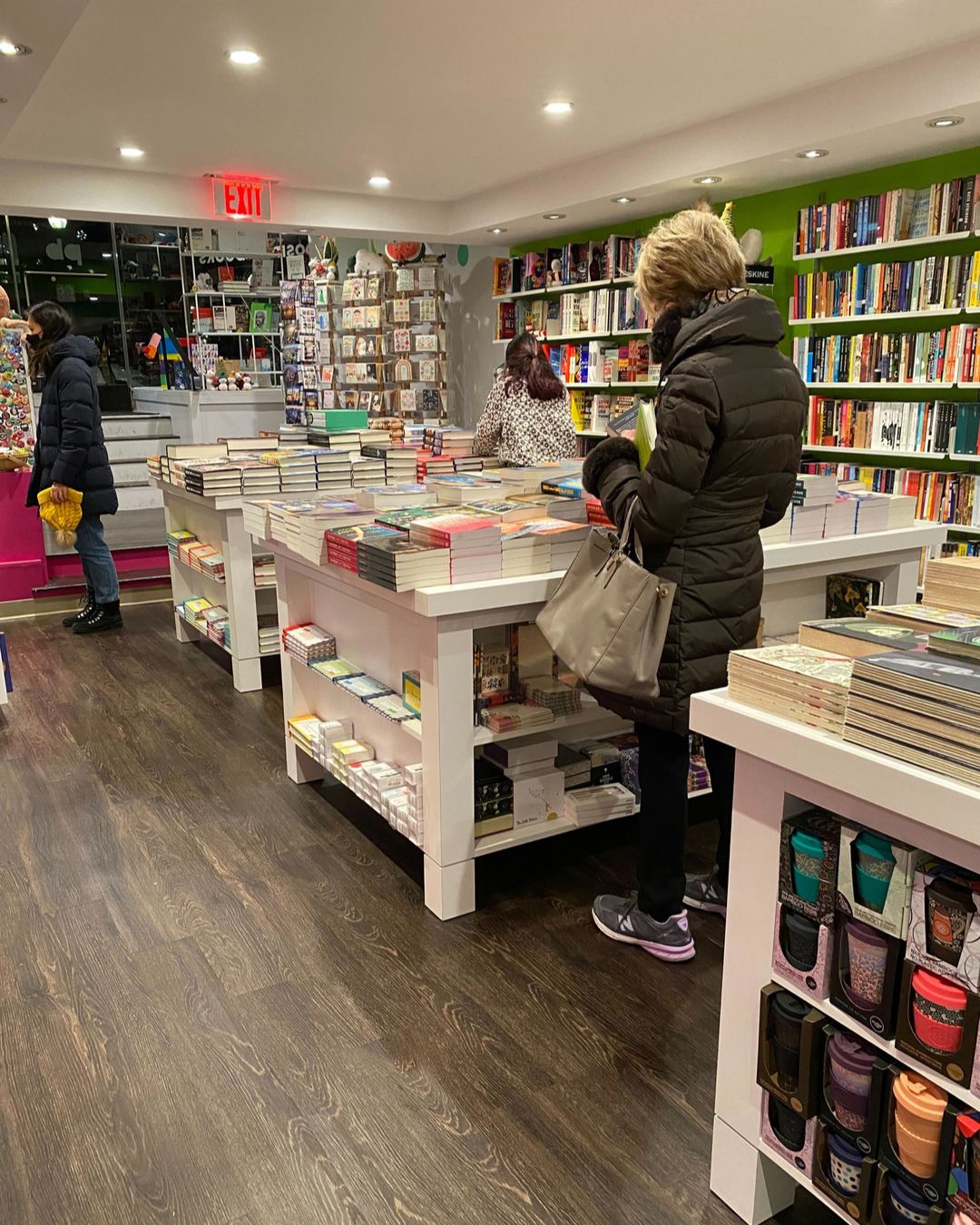 Posted on Instagram by Posman Books, Boston, Mass.: "We can't imagine a better way to decompress after work than to peruse the tables at our Newbury Street location. How do you decompress after work?"
Posted on Instagram by Posman Books, Boston, Mass.: "We can't imagine a better way to decompress after work than to peruse the tables at our Newbury Street location. How do you decompress after work?"
"The bookstore café is an iconic New York institution that sadly faded out over the past few decades, but literary, culinary spaces are certainly on the rise," TimeOut NY reported in showcasing "dozens of spots to shop for books (or borrow books) and enjoy caffeinated or alcoholic beverages are popping up across the boroughs. As You've Got Mail turns 25, a whole new slew of independent bookstores with dreamy bookshelves and cafe menus are taking center stage, and we're eager to cozy up in all of them. Here's where to read and drink at the best bookstore cafés in New York City."
At Humanoids:
Holly Aitchison has joined the company as director of sales. They have nearly a decade of experience in comic book publishing, most recently at Oni Press and earlier at BOOM! Studios.
Esther Kim has joined the company as director of marketing. Kim formerly was marketing manager at BOOM! Studios and earlier worked in sales at Image Comics and was a manager and co-ower of Fantom Comics in Washington, D.C.
Amanda Lucido has been promoted to director of U.S. publishing operations. Lucido is a writer, filmmaker, and creative coordinator who joined the company in 2018.
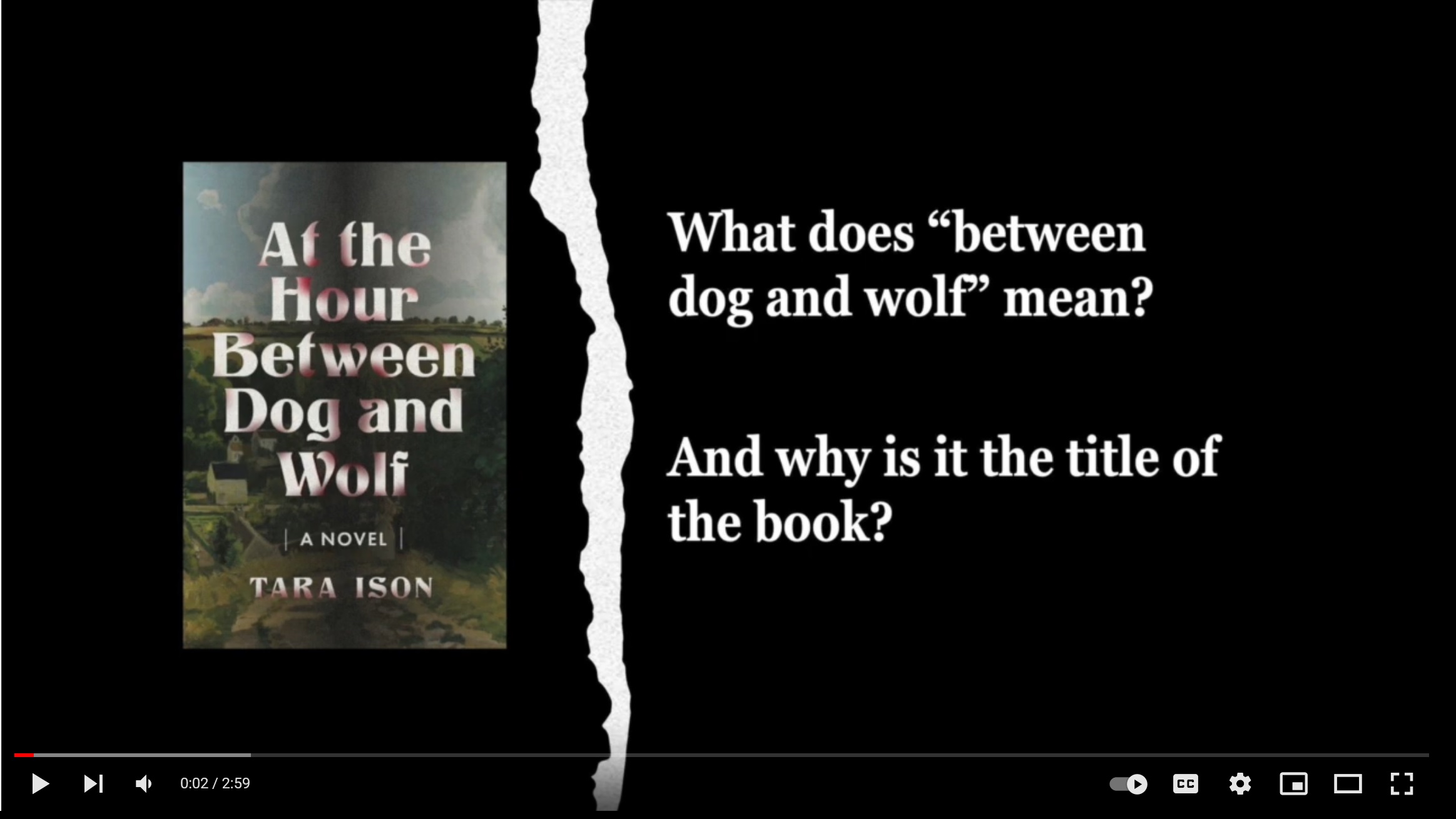 At the Hour Between Dog and Wolf by Tara Ison (Ig Publishing).
At the Hour Between Dog and Wolf by Tara Ison (Ig Publishing).
Today:
Fresh Air: Ed Yong, author of An Immense World: How Animal Senses Reveal the Hidden Realms Around Us (Random House, $30, 9780593133231).
Patrick Radden Keefe will create and executive produce a TV adaptation of his 2010 book The Snakehead: An Epic Tale of the Chinatown Underworld and the American Dream, "described as a mix between The Godfather and Chinatown," after A24 "beat out a number of rival production houses to score the rights in a bidding war," Deadline reported.
Radden Keefe's books include Say Nothing:A True Story of Murder and Memory in Northern Ireland, and Empire of Pain: The Secret History of the Sackler Dynasty. A TV adaptation of Say Nothing is set to go into production this spring as a limited series for FX. He is also exec producing the upcoming Netflix limited series Painkiller, directed by Peter Berg and produced by Eric Newman.
PEN America has announced the finalists for the 2023 PEN America Literary Awards, which include the PEN/Jean Stein Book Award; PEN/Robert W. Bingham Prize for Debut Short Story Collection, PEN/Hemingway Award for Debut Novel; PEN/Voelcker Award for Poetry Collection; PEN/Diamonstein-Spielvogel Award for the Art of the Essay; PEN/E.O. Wilson Literary Science Writing Award; PEN/Jacqueline Bograd Weld Award for Biography; PEN/John Kenneth Galbraith Award for Nonfiction; PEN Award for Poetry in Translation and PEN Translation Prize. The finalists can be seen here.
Winners will be announced at an in-person event on March 2 in New York City.
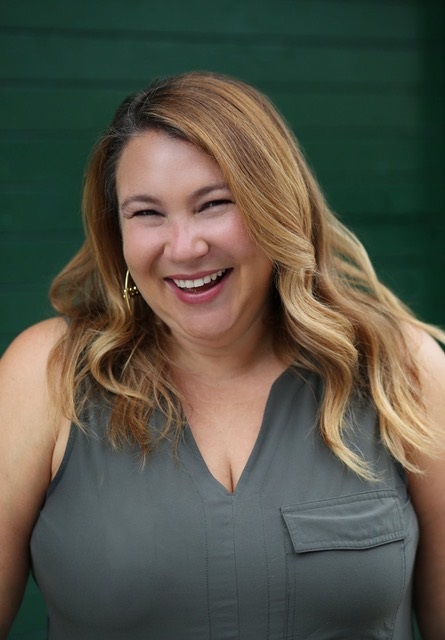 |
|
| photo: Sammy Tunis | |
Alisha Fernandez Miranda is chair and former CEO of I.G. Advisors, a social impact intelligence agency that consults with nonprofits, foundations and corporations on their philanthropy and social initiatives. Her clients include the Bill and Melinda Gates Foundation, the Ford Foundation and UN Women. Her writing has been featured in Vogue, Business Insider, Romper and the Huffington Post, among others. At the beginning of 2020, Miranda paused her high-powered career to pursue a series of internships: backstage on Broadway; with contemporary art dealer Blain and with fitness studio Retroglow; and in the kitchen of the Kinloch Lodge. My What If Year (Zibby Books) reflects on those experiences.
Handsell readers your book in 25 words or less:
My What If Year is a hilarious memoir (mine!) about leaving my job as CEO to take internships at the dream jobs of my childhood.
On your nightstand now:
This year I have been guest-hosting Zibby Owens's podcast, Moms Don't Have Time to Read Books, so I have been focused on powering those authors' (fab) books in order to record those episodes. But now that those are done, the winter for me is all about comfort and joy. Next up, I've got Lucie Yi Is Not a Romantic by Lauren Ho and the upcoming Hedge by fellow Zibby Books author Jane Delury.
Favorite book when you were a child:
I was obsessed with series about groups of girls finding their way in the world: the Baby-Sitters Club, Sweet Valley Twins, the Saddle Club. But my number-one was a book called This Place Has No Atmosphere by Paula Danziger. It's about a girl who has to move to a moon colony with her parents. It's set in 2057, and I couldn't wait for all that future tech to come true. (AirPods did!)
Your top five authors:
My answer to this depends on the day and my mood, because I am a person who loves deeply and fangirls hard, so I have a lot of favorites. But the top five whose next book I would pick up, without even needing to read a blurb about it, are: Emily Henry, Curtis Sittenfeld, Xochitl Gonzalez, Gabrielle Zevin and Chimamanda Ngozi Adichie.
Book you've faked reading:
In high school, I could not get through more than three pages of Moby-Dick without falling asleep, but with great determination, I passed AP English, thanks (embarrassingly) to the CliffsNotes.
As an adult, I'm embarrassed to say that I have referenced Freakonomics many, many times in conversation without ever having read it. Maybe 2023 will be the year I actually do.
Book you're an evangelist for:
When I love a book, I tell everyone about it. Currently, that book is Anand Giridharadas's The Persuaders. Everyone I know is tired of hearing me talk about it, but it's given me hope for the future of democracy and political discourse. I found myself (as I have with his previous books) fascinated and challenged in equal measure.
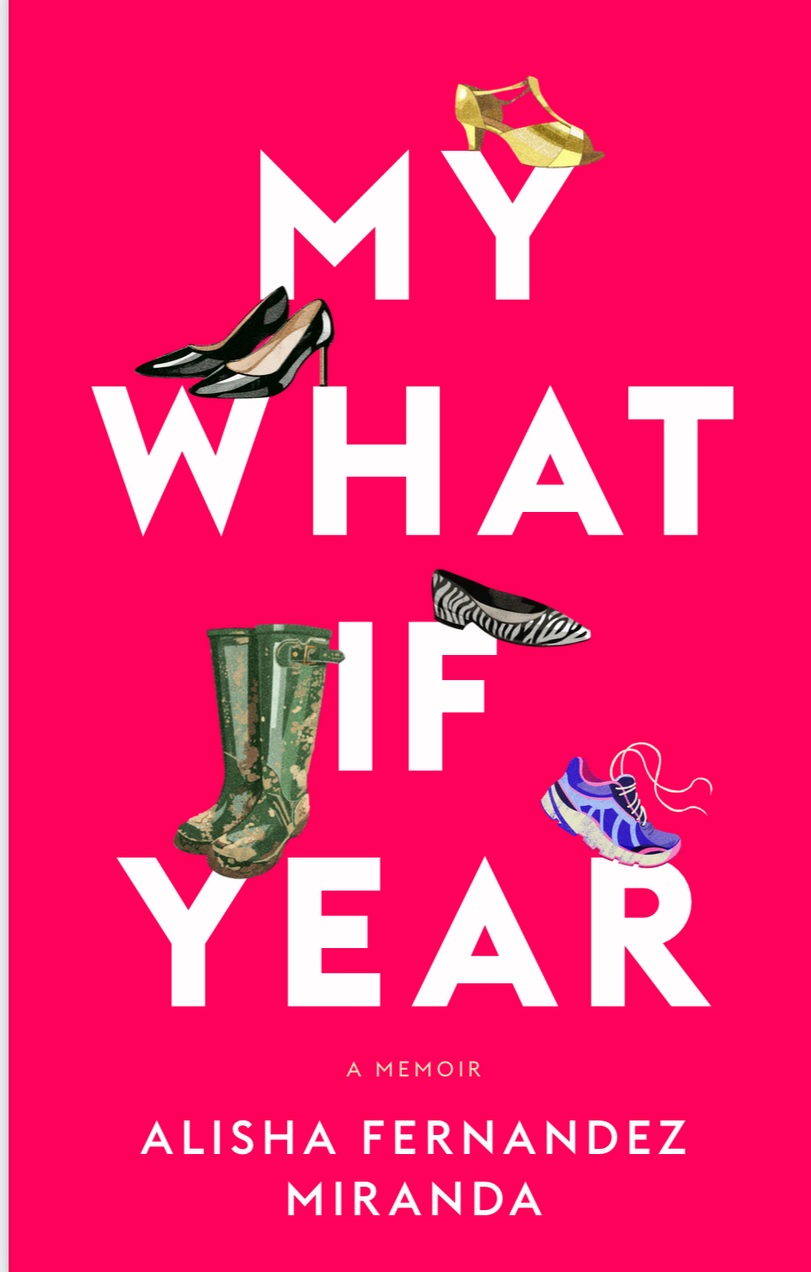 Book you've bought for the cover:
Book you've bought for the cover:
I'm not such a sucker for a pretty cover (although I am partial to pink), preferring to pick up recommendations by friends, Instagrammers or booksellers whose tastes run similar to mine. But I remember being very attracted to the image of a woman with her head face down on a desk on the cover of There's No Such Thing as an Easy Job by Kikuko Tsumura and buying it with no other information. It was a great decision. I loved that book. Also, it was pink.
Book you hid from your parents:
This is embarrassing, because I am in my 40s, but probably the A Court of Thorns and Roses series by Sarah J. Maas, just this year. Those books have SO. MUCH. GRAPHIC. SEX. My mom and I share book recommendations, but I didn't tell her I was reading these for fear she would start them and then that would be a whole awkward situation. Instead, I told her I was reading "something with a depressing ending." That's not to her taste, so she didn't ask any further questions.
Book that changed your life:
For many months, I had the idea of taking a bunch of internships in my dream-careers--but not the guts to do anything. I mentioned it in passing to my friend Vanessa who said, "That sounds like Cork Dork. Have you read Cork Dork?"
Bianca Bosker's journey to embed herself completely in the wine industry, with the hopes of becoming a master sommelier, was both an inspiration and a revelation. She did it, so maybe I could, too? I devoured her story at a critical juncture, and I like to think it gave me the push I needed to take the leap and look for my first internship.
Favorite line from a book:
Jane Austen was the absolute OG of the witty line. I still laugh out loud when I (constantly) reread her work. From my favorite of her novels, Mansfield Park: "Nothing ever fatigues me but doing what I do not like."
Five books you'll never part with:
I love nothing more than passing on books I have loved to friends, but there are a few that won't ever leave my shelf:
My original copy of Bea and Mr. Jones, a children's book by Amy Schwartz, that I've had since childhood. It even has the Reading Rainbow sticker on it. When they were little, I let my kids "borrow" it, but we all know it's mine.
An uncorrected proof of J.K. Rowling's Harry Potter and the Prisoner of Azkaban (my favorite in the series), with a mistake in it, that I got as a teenager when I worked at Books & Books in Coral Gables, Fla.
A battered paperback of Marjorie Morningstar by Herman Wouk. I have read that book at different stages of my life, finding new meaning each time. One of the best things about rereading a classic is that the text never changes, but your interpretation is rarely static.
My current copy of A Suitable Boy by Vikram Seth. It's one of my favorite books of all time, and I am always giving it away if someone comes over and says they've never read it. Before travel became such a huge part of my life, books were my way to experience the world, and that novel helped embed my deep love for and fascination with India.
My twins' copy of Happy Birthday to You! by Dr. Seuss, which I read to them every year on their birthday. I had a few difficult years on my road to being a mom, so for me every birthday is a miracle. We got that copy as a gift when they were born, and I'll never part with it.
Book you most want to read again for the first time:
I read The Fellowship of the Ring by J.R.R. Tolkien my first year of college and was so absorbed in the story that my roommates hid the book from me until finals were over. They were worried I wouldn't be able to put it down to study. (They were not wrong.)
Tolkien is a master at worldbuilding. As he constructed the trilogy to such a satisfying finish (Sharkey diversion notwithstanding), I just wanted to learn everything there was to learn about Middle-earth. I can remember the anticipation of needing to know what came next; I'd love to feel that way again.
Fever in the Heartland: The Ku Klux Klan's Plot to Take Over America, and the Woman Who Stopped Them by Timothy Egan (Viking, $30 hardcover, 432p., 9780735225268, April 4, 2023)
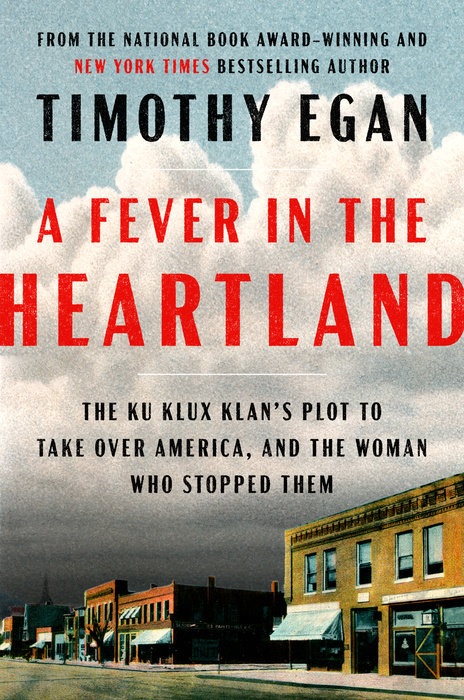 With right-wing extremism on the rise in the United States in 2023, former New York Times columnist Timothy Egan's A Fever in the Heartland: The Ku Klux Klan's Plot to Take over America, and the Woman Who Stopped Them arrives at a critical moment. This engrossing story of the revival of the Ku Klux Klan in the early 1920s and its precipitous fall is a chilling cautionary tale for anyone concerned about the persistence of racism, antisemitism and other forms of bigotry in American society.
With right-wing extremism on the rise in the United States in 2023, former New York Times columnist Timothy Egan's A Fever in the Heartland: The Ku Klux Klan's Plot to Take over America, and the Woman Who Stopped Them arrives at a critical moment. This engrossing story of the revival of the Ku Klux Klan in the early 1920s and its precipitous fall is a chilling cautionary tale for anyone concerned about the persistence of racism, antisemitism and other forms of bigotry in American society.
Egan's book focuses on D.C. ("Steve") Stephenson, an eighth-grade dropout from Texas who rose in a few short years from anonymity to become the most powerful political figure in the state of Indiana. He served as the state Klan's Grand Dragon, leading a membership, at its pinnacle in 1924, of some half a million and a private militia of 30,000 men. But the "Old Man" (in his early 30s at the height of his power) didn't rely solely on keen political acumen to fuel his dominance.
Stephenson skillfully ran an extensive organized crime network that used bribery, blackmail and brute force to control politicians, ministers, judges and law enforcement officials at every level, and that provided protection for illegal activities that included rampant terrorism against Blacks, Jews, Catholics and immigrants, along with bootlegging during the Prohibition era. Stephenson was also a violent sexual predator, and it was that flaw that triggered his downfall.
In March 1925, he kidnapped Madge Oberholtzer, a young Indianapolis woman who had entered his orbit innocently seeking help in retaining her state job. On a train to Chicago, Stephenson savagely raped Madge, covering her body with deep bites, and driving her to attempt suicide with bichloride of mercury tablets. Madge died an agonizing death 29 days later, but not before providing a graphic declaration describing Stephenson's brutality that became the centerpiece of his murder trial. Egan (The Immortal Irishman) provides a vivid account of that trial in the tiny town of Noblesville, Ind., when a jury of 12 men, three of them likely Klan members, were called upon to provide justice.
But A Fever in the Heartland is about much more than one man's abuse of power and personal depravity. In its thorough, frank depiction of how easily millions of Americans were mobilized to support a movement grounded in hatred for anyone who was not a native-born, white Protestant, it's a reminder of the need for vigilance against such threats. It can happen here, Egan reminds Americans, because it did. --Harvey Freedenberg, freelance reviewer
Shelf Talker: Timothy Egan's account of the rebirth of the Ku Klux Klan in the 1920s is both a valuable work of history and a reminder of the persistent dangers of violent right-wing extremism in the United States.
In a garden green and fair,
A flower blooms, a sight so rare.
But is it meant for me, I fear?
Will I, like it, bloom this year?
In the Atlantic Monthly recently, Walt Hunter wrote: "Odds are good that this poem, titled 'Is It for Me?,' will not win the National Poetry Series. The final phrase seems plucked from T. S. Eliot's 'The Waste Land,' which gives the last line an unintended comic air, because Eliot is referring to a corpse." Hunter also observed that one of the least discussed aspects of the AI language generator ChatGPT "might be its ability to produce pretty awful poetry."
 ChatGPT is sucking the virtual air out of the media room lately, everywhere I read. At first I didn't think I was paying close attention to all the generative AI noise, but then realized I was and began keeping score.
ChatGPT is sucking the virtual air out of the media room lately, everywhere I read. At first I didn't think I was paying close attention to all the generative AI noise, but then realized I was and began keeping score.
Just in the past few days I learned that Noam Chomsky sees the use of ChatGPT as "basically high-tech plagiarism" and "a way of avoiding learning." Mark Cuban believes "we're just in the first inning of what's going to happen with AI interactive models. If you go to ChatGPT and OpenAI.com and play with it, it's stunning. It's stunning how far it is.... But imagine, you know, this is version 3.5. Version 10? What goes into those models is going to be more impactful than Twitter."
On Tuesday I received an e-mail from the University of Toronto Press (subject line: "An AI Bot Wrote This Copy about THE NEAR-DEATH OF THE AUTHOR") with this note: "UTP generated this press release by loading catalogue copy for The Near Death of the Author: Creativity in the Internet Age by John Potts into Copy.ai. Here's what came out."
They were kidding, I'm pretty sure, unless... the warning note was also generated by loading a publicist's staff meeting notes about the press release into Copy.ai. Maybe I'm getting paranoid. Or more paranoid. What to do? Keep reading.
CNBC reported that Google execs "understand that the company's artificial intelligence search tool Bard isn't always accurate in how it responds to queries. At least some of the onus is falling on employees to fix the wrong answers."
In Fast Company, Alberto Romero wrote that ChatGPT has "sounded the alarm for everyone.... Big changes are coming. This extrapolates across all levels of language. If I write 'langauge,' anyone can tell that's wrong. If I write 'colorless green ideas sleep furiously,' anyone can tell that's semantically meaningless. This applies to entire texts as well--the weakness of language models like ChatGPT. AI writing tools have perfect grammar but make up facts in argumentative essays and couldn't write a fantasy book chapter without failing to portray the characters coherently throughout."
Ted Chiang advised me in a New Yorker piece to think of ChatGPT "as a blurry jpeg of all the text on the Web. It retains much of the information on the Web, in the same way that a jpeg retains much of the information of a higher-resolution image, but, if you're looking for an exact sequence of bits, you won't find it; all you will ever get is an approximation."
"ChatGPT cannot feel or taste or smell," Wendell Jamieson wrote in the Boston Globe yesterday, trying to make me feel better. "It can't listen or see or play the piano. It cannot run or trip or climb a ladder or eat sushi. It cannot rush into a burning building to save a trapped child. It cannot love or hate or hold a baby or go deep-sea diving or play shortstop. It cannot admire a Vermeer. It cannot do any of those things so, therefore, it cannot describe them as they truly are, and as they truly are different to everyone who experiences them."
And Steven Pinker told the Harvard Gazette: "We're dealing with an alien intelligence that's capable of astonishing feats, but not in the manner of the human mind.... We don't need to be exposed to half a trillion words of text (which, at three words a second, eight hours a day, would take 15,000 years) in order to speak or to solve problems."
Not quite reassured, I recalled something else Mark Cuban had said: "Gen X and older doesn't get it, right? Gen Z and younger, they're not only native to it, they know how to block things out. It's new to us, because we're stuck in a legacy world."
Okay. At least it's not Westworld, the "futuristic fantasy park" where "a group of android 'hosts' deviate from their programmers' carefully planned scripts in a disturbing pattern of aberrant behavior."
Quick! Call ChatGPT for an emergency rewrite.
As a reader, writer and (full disclosure) Boomer, I am indeed "stuck in a legacy world," though I'd prefer to think of it as more of a Restworld, a fantasy park filled with worn, comfortable chairs; and mind-bending books written by creative, imperfect human authors; and gifted booksellers whose RI (Reader's Intelligence)-driven handselling skills defy generative AI villains at every turn.